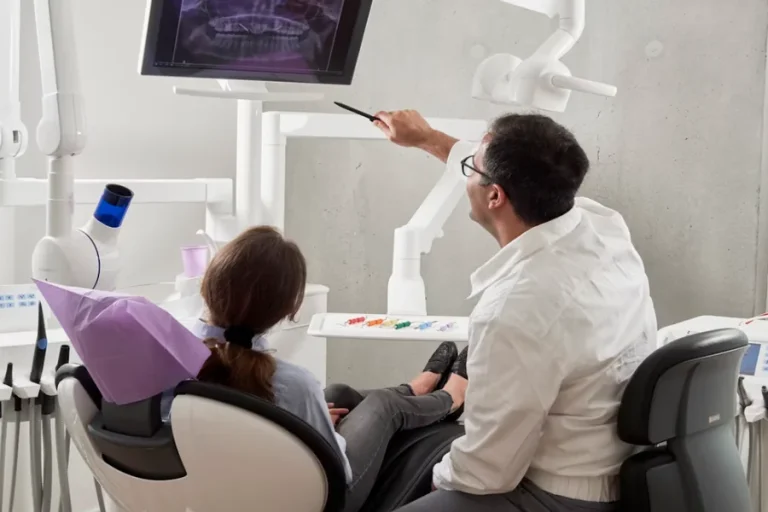The Benefits of Dental Implants for Long-Term Oral Health

Losing a tooth isn’t just a cosmetic concern. Gaps in your smile can have lasting effects on how your mouth functions, your jawbone health, and your overall confidence. While there are several options for replacing missing teeth, dental implants stand out as one of the most durable and long-lasting solutions available today.
But beyond the obvious appeal of a complete smile, what do dental implants really offer in terms of long-term oral health? Let’s explore how this treatment supports your mouth not just now, but for years to come.
What Are Dental Implants?
Dental implants are small titanium posts that are surgically placed into the jawbone where a natural tooth root once was. Once fitted, they fuse with the bone in a process called osseointegration, creating a stable base for replacement teeth like crowns, bridges or dentures.
This structure closely mimics the natural tooth, both in appearance and function, making it one of the most trusted modern dental solutions for missing teeth.
Preserving Jawbone Density
When a tooth is lost, the jawbone underneath begins to shrink. This is because the bone no longer receives the stimulation it needs from the tooth root when chewing. Over time, this can cause the face to look sunken or older than it is.
Dental implants help prevent this problem. Because the titanium post acts like a natural tooth root, it continues to stimulate the jawbone, keeping it active and strong. This helps to maintain facial structure and stop bone loss — something that dentures and bridges alone cannot do.
Improving Bite Function and Chewing Power
One of the most noticeable effects of missing teeth is reduced bite strength. Chewing on one side, avoiding hard foods, or dealing with uncomfortable dentures can make everyday eating a challenge. Dental implants provide a secure anchor point for replacement teeth, allowing patients to chew with confidence again.
This means you can enjoy a wider variety of foods — including tougher meats, crunchy vegetables, and chewy textures — without discomfort or fear of dislodging a denture.
Protecting the Surrounding Teeth
When you leave a gap in your mouth, nearby teeth can shift over time into that empty space. This can affect how your teeth bite together and may even lead to misalignment, crowding, or further tooth loss.
Dental implants help keep the surrounding teeth in place by filling that gap in a way that doesn’t rely on them for support. Unlike traditional dental bridges, which need to be attached to the teeth either side of the space, implants stand independently and don’t cause extra wear on neighbouring teeth.
Long-Term Stability and Durability
One of the key advantages of dental implants is how long they last. With proper care — brushing, flossing, and regular check-ups — dental implants can last for decades, or even a lifetime.
Compare this to dentures or bridges, which may need replacing every 5 to 10 years due to wear, damage, or changes in the mouth. Dental implants are built to be a permanent solution, making them a wise investment in your long-term oral health.
Improved Speech and Confidence
Missing teeth can affect the way you speak, particularly if they’re located near the front of the mouth. Gaps may cause whistling sounds or slurred speech, and dentures that move around can make it even more difficult to pronounce words clearly.
Because dental implants are fixed securely in the jaw, they feel like your natural teeth. This leads to clearer speech and greater confidence when talking to others — whether you’re meeting clients, giving a presentation, or catching up with friends.
Ease of Maintenance With Dental Implants
Caring for dental implants is simple. Unlike dentures, which need to be removed, soaked, and brushed separately, implants are looked after in much the same way as natural teeth. Regular brushing, flossing, and routine dental check-ups are all that’s needed to keep them healthy.
They won’t decay like natural teeth, but they can still develop issues if the gums around them become infected. That’s why it’s important to keep up with oral hygiene and professional cleaning, especially in the first year after surgery.
Suitability for Different Ages and Needs
Dental implants are a versatile solution. Whether you’ve lost a single tooth due to injury or need to replace several teeth because of decay or gum disease, Purley Dental implants can tailor implants to suit patient needs. In some cases, even a full arch of teeth can be supported on as few as four or six implants, offering a more stable alternative to traditional dentures.
Most adults with good general health are suitable candidates for dental implants, though your dentist may recommend additional procedures — like a bone graft — if you’ve experienced significant bone loss.
Better Oral Health in the Long Run
Ultimately, replacing missing teeth with implants helps to support a healthier mouth overall. You’re less likely to suffer from gum disease or jawbone shrinkage, and more likely to keep your remaining natural teeth for longer.
People who replace missing teeth tend to feel more motivated to care for their oral health. They also attend dental appointments more regularly and pay closer attention to hygiene routines, reducing the risk of problems in the future.
Is the Procedure Safe?
Dental implant surgery is a routine procedure carried out by trained professionals. With proper planning, sterile technique, and aftercare, the risks are minimal. While all surgery carries a small chance of infection or complications, dental implants have one of the highest success rates in dentistry, often over 95%.
Patients are typically back to work and daily activities within a few days. Any discomfort is usually mild and can be managed with over-the-counter pain relief. The long-term benefits far outweigh the short recovery period.
Conclusion
Dental implants are more than just a cosmetic fix. They offer real, long-term health benefits that protect the structure of your mouth, improve function, and give you back the confidence that comes from a healthy, natural-looking smile.
If you’re missing one or more teeth, it’s worth discussing dental implants with your dentist. With the right care, they can offer a lifetime of support for your oral health — and that’s something worth smiling about.



![The Best Way to Buy Modvigil Online in 2025 [No Rx & Best Price]](https://netizensreport.com/wp-content/uploads/2025/09/The-Best-Way-to-Buy-Modvigil-Online-in-2025-No-Rx-Best-Price-768x512.webp)